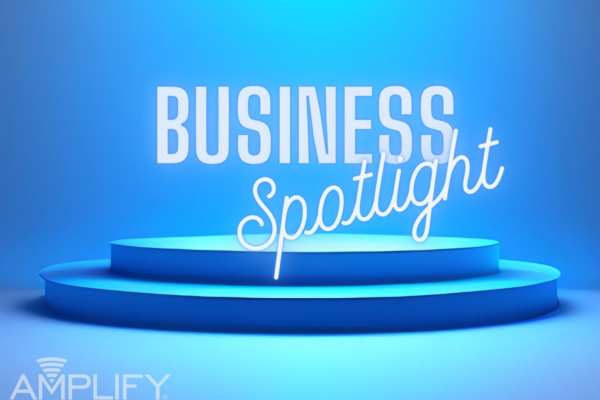
Myths about Commercial Loans: Part II

Did you know that only 48% of small businesses have their financing needs met? This means that if you are among the businesses out there that could benefit from a commercial loan, you’re not alone. In fact, you’re in the majority of businesses that could use commercial financing to fuel expansion and give your business the competitive edge it needs to flourish.
In this second installment of our Myth About Commercial Loans series, we’re looking at five more misconceptions about business loans. We’re joined again by Amplify’s commercial lenders, Shirley Sheffield, Rene Flores, and Alex Olmos, who have helpful tips and advice for prospective commercial borrowers. (Missed Part I? Check it out here.)
Commercial Lending Solutions
Already have a commercial project that just needs financing? Talk to our Commercial team today.
5 More Myths About Commercial Loans
6. Commercial loans have the same interest rates long-term.
Commercial loan rates can vary based on a wide variety of factors. You can expect different interest rates across different lenders.
“Lenders are probably 80% the same regarding interest rates,” Rene Flores explained. “But some only offer fixed rates for a short period of time, such as 5 years. Others will offer fixed rates for 7-10 years, while some will only offer a variable interest rate. It is important to do your homework and compare all facets of rates and loan terms.”
Your rate can even vary within a single lender. Shirley Sheffield added, “Rates for commercial loans are dependent upon many things: market forces, collateral quality, borrower’s leverage and liquidity, and term and adjustment periods.”
She continued, explaining “All things being equal— which they rarely are— the interest rate for a longer-term fixed-rate loan is higher than a rate that floats daily.”
7. You can use a commercial loan for whatever you want.
Anytime a financial institution lends money, they take on inherent risk. However, by having lending requirements, they increase their chances of lending to a creditworthy borrower able to fully repay their loan. Part of the risk management process involves understanding how your business plans to use the money.
“Most commercial loans are project or real estate specific, meaning that all of the loan proceeds are going towards the purchase of property or equipment,” Flores said. “Sometimes loan proceeds will go towards repair or rehabilitation costs. But overall, commercial loans are traditionally earmarked for a specific purpose.”
Sheffield added, “Lenders lend money to companies within industries and for purposes that they are comfortable with. They want to be sure loan proceeds are improving the business— not being used to finance a lavish lifestyle. Additionally, there are some purposes or industries that a lender may want to distance themselves from.”
Olmos went even further, explaining some finer points of the financing process: “We’ll actually itemize out the project “uses” to ensure monies are going to the intended purposes. That’s also why you’ll see professional third-party inspections on construction projects, reimbursing the borrower or general contractor for work completed.”
If a lender feels that your purpose for wanting money poses a major financial or reputation al risk, you may not get approved.
8. You can get a commercial loan without putting any money down.
In some instances, a business may be able to accomplish getting a loan without any money down, but it is rare.
In order for this to happen, one must build up equity or assets in the business that can be provided as additional collateral instead of the cash down. Most of the time, however, these types of loans happen outside of a traditional lender.
“Sometimes hard money lenders may allow you to do this if the subject property is owned free and clear,” Flores explained. “This would be referred to as asset-based lending. Most conventional lenders are cash flow lenders.”
Olmos outlined some basic expectations for business loan down payments: “Depending on what type of commercial loan you’re applying for, you can expect 10-20% down for SBA loans, a minimum of 20% for owner-occupied loans, and normally 25%+ for investment commercial real estate.”
In general, if you’re taking out a commercial loan, be prepared to put forward a down payment .
9. You don’t have to be “on the hook” if you can’t pay back your loan.
Unfortunately, most borrowers are liable for repaying a loan that they took out— even if it was meant for business purposes only.
“If you sign loan paperwork, you have signed a legal document that binds you to certain responsibilities— namely the full repayment of the loan proceeds. Even if the loan is government-backed such as an SBA loan, you are still going to be personally responsible for repaying any difference in collateral value and outstanding loan balance,” Flores explained.
There may be some instances where a borrower wouldn’t be liable for repaying a commercial loan. This is known as a non-recourse loan. Generally, these are only considered when a borrower has paid a very significant down payment.
Sheffield offered a helpful piece of advice for business owners struggling to repay their loan:
“When experiencing financial difficulties, you should always talk to your lender first. They may offer salient advice or be able to restructure your loan in the short-term while you seek long-term solutions. It is best to deal with problems earlier while you still own the assets instead of the lender taking possession. Unfortunately, the lender can rarely fully repay the loan from a business sale. The resulting debt can weigh heavily on a borrower as they attempt to move on to their next opportunity.”
10. Commercial loans are all the same.
Just as a home mortgage has several notable differences from a small personal loan, there are commercial loans of all shapes and sizes designed for different purposes.
“Commercial loans share many of the same structures since all lenders abide by similar regulations and legal advice,” Sheffield said. “However, each lender has different risk tolerances, areas of expertise, cost structures, loan systems, and geographic regions that they serve. The varying needs and players involved result in a multitude of loan products.”
Rene Flores reminded borrowers that the varying loan terms mean that you really have to do your research to find the best deals— you can’t expect the same product everywhere. “If you’re looking for a fast loan without considering the loan terms, you can always find someone that’s willing to give you a loan with terrible terms—for example, with a rate 5-10 percent higher than traditional loans and 3-4% origination fees,” he explains. “Don’t compromise the future of your business for a quick loan.”
Do Your Research to Find the Right Commercial Loan
There is no shortage of options when it comes to commercial loan offerings. Always be sure to do your research to find the best interest rate, type of loan, and lender relationship for your business. Taking out a commercial loan is a significant step for your business, so it’s important to be fully prepared with a business plan, an understanding of your credit history, and any collateral or cash you might need to secure your loan.
You Have Options
Amplify’s commercial lending team can help you find the right solution for your business.


